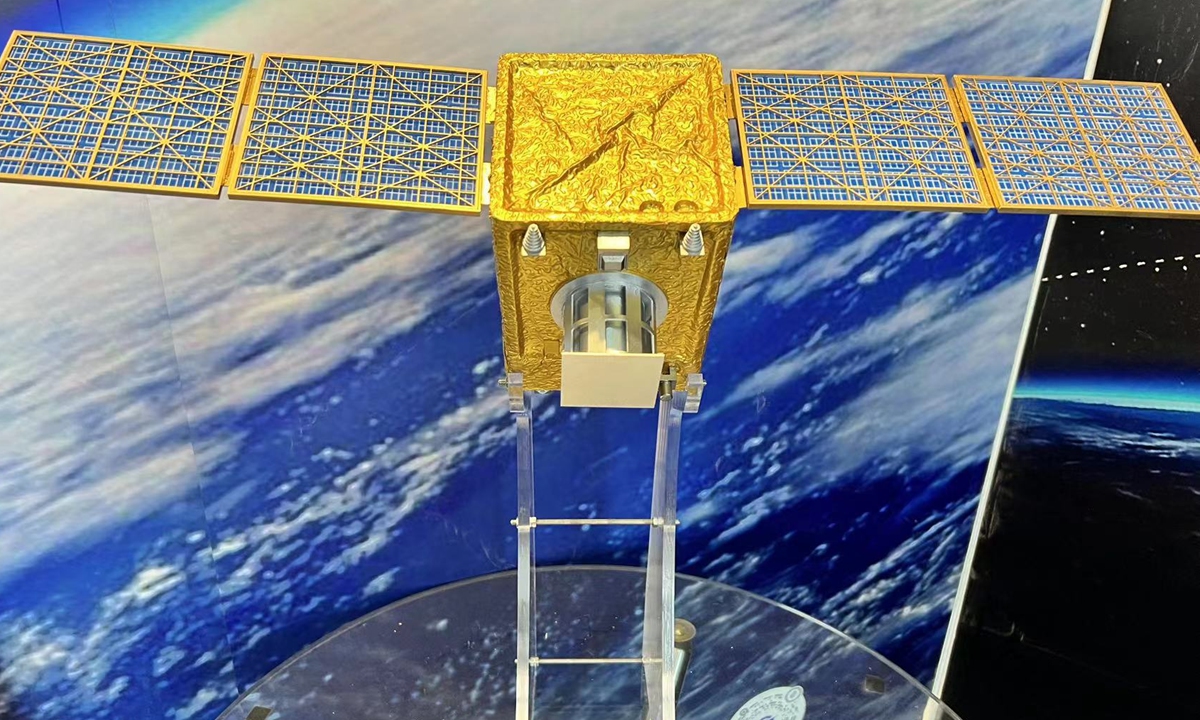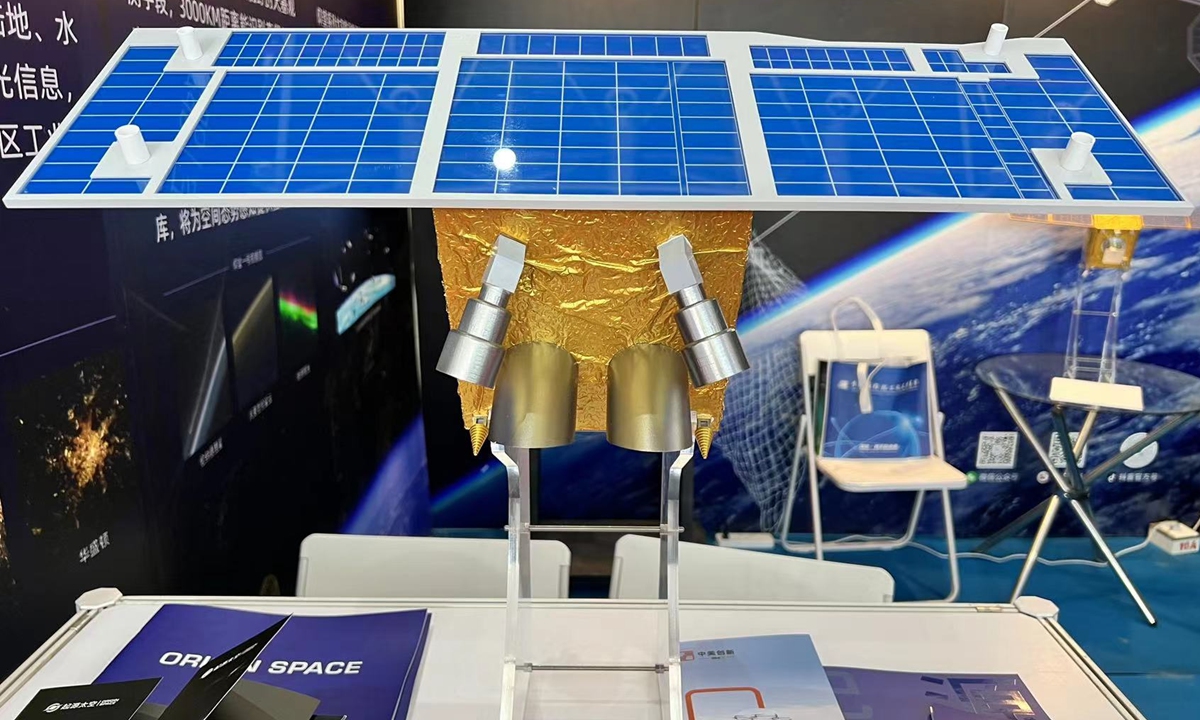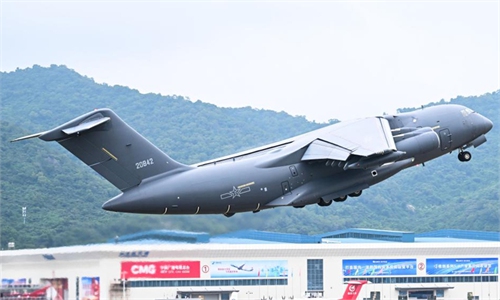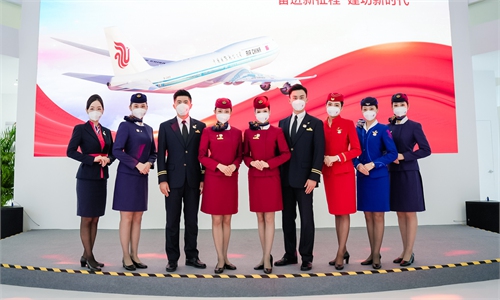
Model of the NEO-01 is displayed at Airshow China in Zhuhai, South China's Guangdong Province. Photo: Cao Siqi/GT
The model of a robotic platform that had been launched into low-Earth orbit by a Chinese space-mining start-up made its debut at Airshow China, drawing wide attention from space fans for its wild vision of how to lead the world on space debris removal techniques and to pave the way for technologies capable of mining on asteroids.
The NEO-01, developed by Nanjing-based Origin Space Technology Co, which claims to be the first Chinese company dedicated to exploring and utilizing space resources, was launched on a Long March 6 rocket for space debris removal and asteroids mining experiments in deep space in April 2021.
The Global Times learned from the company at the air show that the robot prototype completed an experiment of using a large net to capture space debris and the relative technique verification in key steps, which is the first commercial company in the world to complete such an experiment.
"In the future, the NEO series satellites could clear space debris by dragging it out of orbit and burning it in atmosphere, and accurately capture space debris that may pose a threat to space spacecraft and other targets to protect the safety of space facilities," Su Meng, founder and CEO of Origin Space, told the Global Times on Sunday.
Since the establishment of the world's first asteroid mining company Planetary Resources in 2009, more than a dozen firms across the world have entered the sector.
Pieces of space debris, space junk and other debris left in orbit that are no longer controlled will pose a major threat to normal spacecraft. Data show that nearly 80 percent of the cataloged objects in orbit are space debris, and the number of uncontrollable space objects is surprisingly large.
The vast space is no longer quiet, space traffic has become busy and space junk will lead to "space car accidents." Space debris removal is urgent, Su noted.
According to Su, by 2025, there are likely to be more than 50,000 satellites in orbit and the amount of space junk will be ten times larger than today. Su vows to build his company into the world's top one with the capability to clear space debris.
On June 22, 2021, Origin Space launched the commercial space telescope Yangwang-1 into orbit from the Taiyuan Satellite Launch Center in North China's Shanxi Province.

Model of commercial space telescope Yangwang-1 Photo: Cao Siqi/GT
During its stay in orbit, Yangwang-1 carried out astronomical, asteroid and space debris observations.




